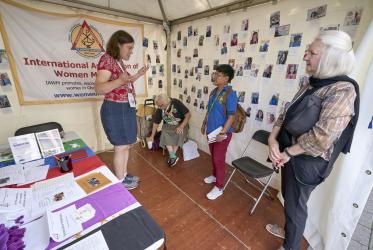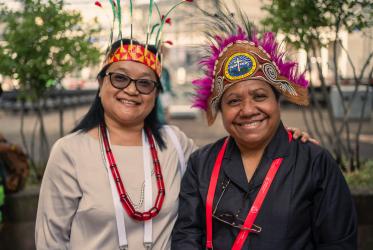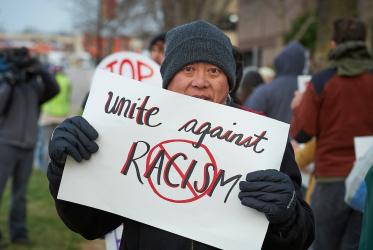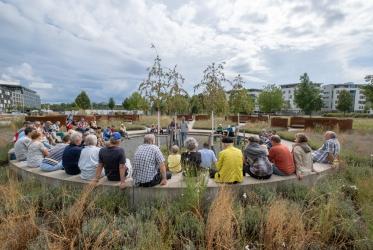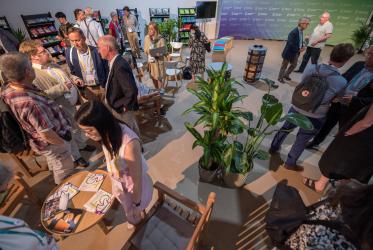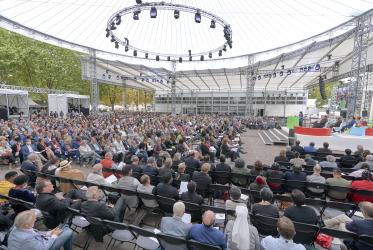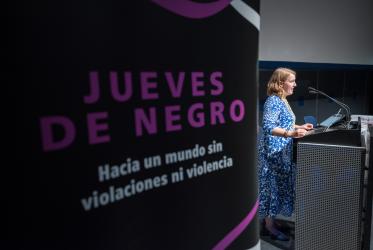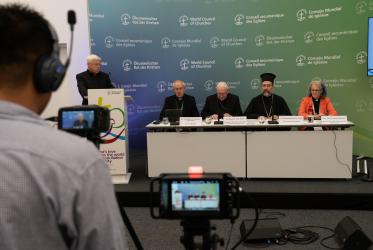Displaying 161 - 180 of 1121
WCC 11th Assembly: safe and welcoming environment for all
19 September 2022
Workshop explores how interreligious dialogue brings trust and respect
15 September 2022
At assembly and beyond, WCC publications inspire and move
14 September 2022
Christ’s Love (Re)moves Borders – GETI 2022 in images
13 September 2022
From hostility to hospitality: Closing prayers at Karlsruhe
09 September 2022
Are you a #ThursdaysinBlack trailblazer?
08 September 2022
Promoting human dignity through art
06 September 2022
Bible studies bring ways to learn how Christ’s love moves us
06 September 2022
Indigenous women struggle for identity in Asia and beyond
05 September 2022
Saturday morning prayers invoke movement for truth and righteousness
03 September 2022

